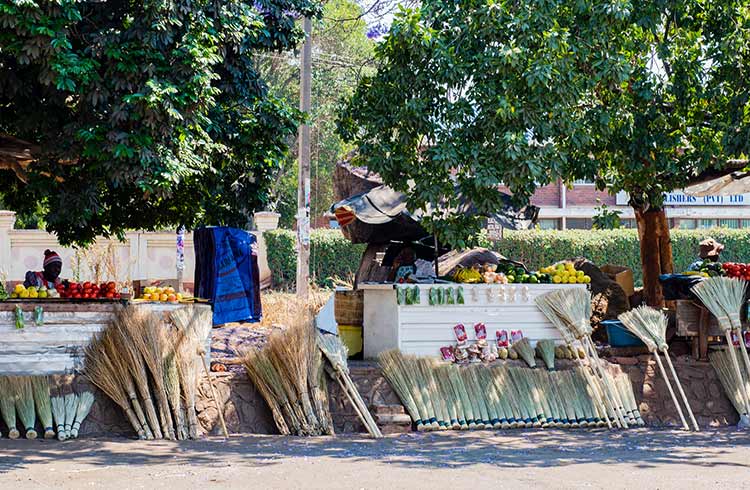Locals Laws in Zimbabwe: What Travelers Need to Know
Visiting Zimbabwe soon? Be aware of local laws against camouflage clothing, politics and photography before you travel.
 Photo © Getty Images/Volker Schlichting / EyeEm
Photo © Getty Images/Volker Schlichting / EyeEm
Talking politics or taking a photo can land you in trouble with the local police.
Just like everywhere else in the world, Zimbabwe has it's own set of laws that rule what locals and travelers are and aren't allowed to do. Some of these may surprise you, so it's important to be aware, or else you may land yourself in a spot of trouble.
Here's what you need to know about local laws in Zimbabwe.
Zimbabwe's local laws
The legal system isn't the fairest, so don't get yourself in trouble or you could find yourself in a very prickly situation.
- Murder, treason, banditry, sabotage and terrorism are punishable by death. Juvenile male offenders may be subject to corporal punishment
- Homosexuality is illegal in Zimbabwe, and penalties include imprisonment
- It is against the law to wear any form of clothing made from camouflage material
- You should avoid engaging in any political activity, or in activities which could be deemed as such, including political discussions in public places
- It is also a criminal offence in Zimbabwe to make any derogatory or insulting comments about the President, Emmerson Mnangagwa. Anyone who says derogatory comments is liable to arrest and prosecution
- Visitors have been detained under suspicion of operating as journalists without accreditation for photographing cultural sites and areas that may not immediately appear to be sensitive
- Tourists may also be arrested or questioned for illegally photographing police, roadblocks, occupied commercial farms, and government buildings or military installations, official residences or embassies – including the president's palace. Prior written permission must be obtained from the appropriate government office before taking photographs of these places.
Local knowledge
Traveling through Zimbabwe can be difficult, and having some local knowledge can be seriously helpful. Even locals avoid driving outside cities at night. Avoid walking in the dark, and always take a taxi – which can be ordered from the reception of your accommodation.
There are unexploded landmines in parts of the border area with Mozambique. While extensive efforts have been made to remove unexploded landmines, it is really hard to say there are none around. Be cautious when visiting this area.
When visiting Victoria Falls, you should take care to protect your passport from exposure to water. It's likely you will face difficulties if your passport gets wet, so carry it in a zip-lock bag, or get a waterproof passport protector – otherrwise, you may have to pay for a replacement.
Hawkers and street vendors may be a nuisance near Victoria Falls. Politely say no if you are not interested, and keep walking.
Zimbabwe's cash crisis
In 2009, soaring inflation forced Zimbabwe to ditch its own currency in favor of foreign currencies, including the US Dollar, South African Rand, and Botswanan Pula. This failed in 2015 when there was a US Dollar shortage.
In June 2019, the government banned all foreign currencies to bring the Zimbabwe Dollar back to life. But this has largely failed, as the Zimdollar has fallen to black market speculation, causing its value to plummet.
Some businesses may still accept US Dollars, however the situation is currently very unpredictable.
Always check to make sure if the price is stated in USD or Zimbabwean (RTGS) dollars, as the prices are often both listed with a simple $ symbol.
International debit cards have been blocked from making cash withdrawals from ATMs. Check with your accommodation before you leave to see if they accept card payments, otherwise you will need to take enough cash with you to get you through your visit.
It is illegal to leave Zimbabwe with more than US $2,000 in cash – so whatever cash you do get out, make sure you spend it, or it's not leaving with you.
Simple and flexible travel insurance
You can buy at home or while traveling, and claim online from anywhere in the world. With 150+ adventure activities covered and 24/7 emergency assistance.
Get a quote
No Comments